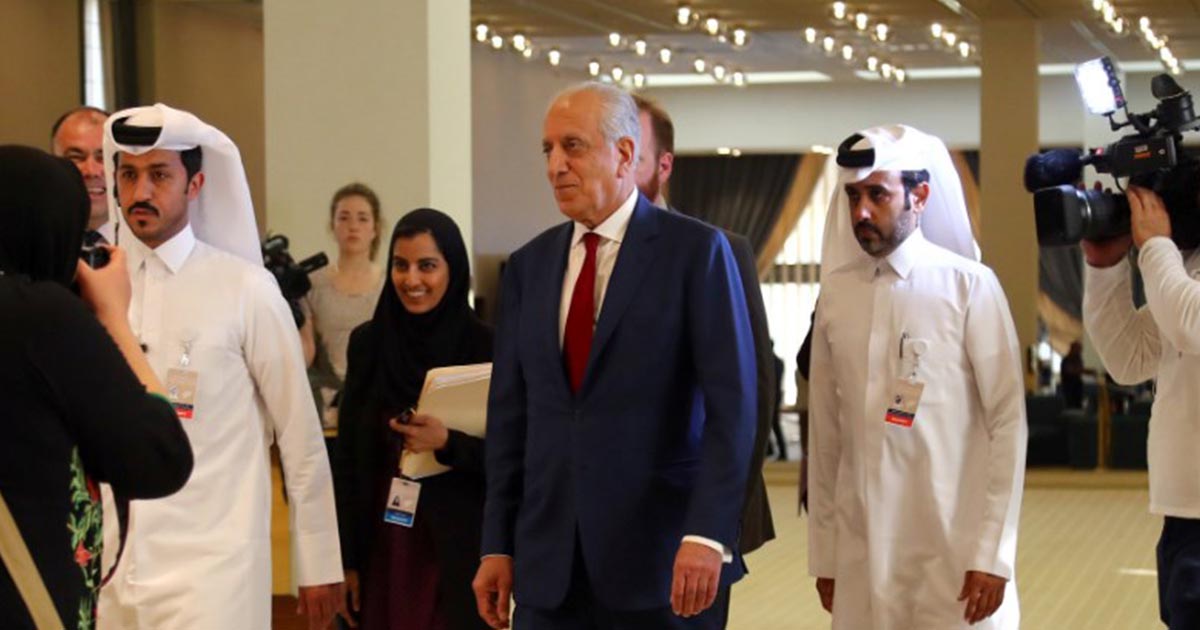The Afghan Taliban claim that their “all demands” have been met in the recently-inked landmark peace deal with the U.S. to end the 18-year conflict in war-stricken Afghanistan.
However, the group acknowledged that the crucial next phase of the deal — intra-Afghan dialogue — will be a “challenging” task.
“There is no such condition [in the agreement] that the Taliban have to negotiate only with the Afghan government. But Yes, it has been agreed that there would be an intra-Afghan dialogue. And this will be a difficult task, which Taliban have to face,” said Mullah Abdul Salam Zaeef, one of the Taliban negotiators, and a former envoy to Pakistan.
In an interview with Independent Urdu website, Zaeef was of the view that not only the Taliban, but the fragile Kabul government too might grapple with a similar situation.
The US-Taliban agreement, which sets into motion the potential of a full withdrawal of US troops from Afghanistan, calls for the release of 5,000 Taliban prisoners.
“We have not made a commitment,” Afghan President says. “It’s a sovereign Afghan decision.”https://t.co/ZWesNPQvww pic.twitter.com/P6rdO5Ks5l— CNN (@CNN) March 1, 2020
“The Taliban have negotiated [with the U.S] under the banner of (its) Islamic emirate. We have not withdrawn from our emirate [government]. If we stick to our emirate, that means we do not accept the existence of any other government [in Afghanistan],” he said adding, “[However], this issue can be resolved through intra-Afghan dialogue.”
“In my view, the solution to this dispute is to deliberate upon a national mechanism in Afghanistan, instead of recognizing [or rejecting] each other,” he went on to say, hinting at the inclusion of Kabul government in the next phase of negotiations.
The Taliban have time and again rejected the international community’s demand for inclusion of Kabul government in the reconciliation process, dubbing it a “puppet government.”
According to Zaeef, Washington’s main concern is that Afghanistan should be meant for Afghans only, and its soil must not be used against it. “Afghans want the same. No one will meddle in our internal matters. Afghanistan will not be used against any neighbor or others. We see Afghanistan’s betterment in that [policy],” he maintained.
“In the past, it had happened but in future Afghanistan must be only for Afghans,” he said in a thinly-veiled reference to use of Afghan soil for terrorist attacks in other countries.
Read more: Pakistan plays its role in Afghan Peace: US, Taliban sign deal for troop withdrawal
The former Taliban diplomat rebuffed the impression that the group’s leadership, and its fighters were not on the same page with respect to the peace deal, saying: “There is a complete harmony within the Taliban ranks.”
Replying to question about reported strict conditions for the Taliban, and the viability of the peace deal, Zaeef said: “There are no hard conditions for the Taliban, except for the one that the Afghan issue is resolved through political dialogue. The Taliban have deliberated over this.”
A good thing
To another question, he claimed that the U.S. wanted to impose “its conditions” on the Taliban but “we did not accept them,” he said, without providing further details of those conditions.
Instead, he said Washington had agreed to a full withdrawal of foreign soldiers from Afghanistan over the next 14 months, “which is a good thing.”
The Taliban, he further said, did not want the repeat of a civil-war like situation that haunted Afghanistan for decades after the pullout of former Soviet forces in 1989.
When asked about the mechanism of release of Taliban prisoners, who are in Kabul government’s custody, and not in the U.S forces detention, Zaeef said, “First, if this is not in the U.S jurisdiction, then how come it accepts this demand? Secondly, the U.S. had argued the same in case of Anas Haqqani [a senior Taliban leader], who too was in Afghan government’s custody. But, eventually he was released.”
I am encouraged by this peace deal, which is a testament to many months of tough negotiations. From the moment he began running for office, President @realDonaldTrump has stated his desire to wind down the war in Afghanistan. https://t.co/ojcA9psjcq #AZ05
— Rep Andy Biggs (@RepAndyBiggsAZ) March 1, 2020
“There are some 40,000 prisoners in Afghanistan, of them, around two-thirds have been arrested by the American forces. If America thinks, this issue is related to Afghan government then why it indulged in this process. If they can arrest people then they have a right to release them as well,” he added.
Responding to a question that if there is a unity government in Afghanistan following the peace deal, will Taliban repeat the “past mistakes” — a reference to the imposition of group’s self-styled Shari’ah law, Zaeef said: “Human being is bound to commit mistakes. but the wiser is one who accepts his mistake, and desists from repeating them.
“In my opinion, the difference between the inception of the Taliban movement, and today, is that there is a change in Taliban’s understanding [of the world], diplomacy, and experience. Now, Taliban’s understanding, diplomacy, and experience are of international nature. In my opinion, it will turn out to be very positive,” Zaeef said.
Asked as to why Taliban agreed to strike a peace deal, he observed that the U.S. invasion of Afghanistan in 2001 was not Afghan’s choice. “It was imposed on Afghanistan. I do not admit that the Taliban have surrendered [by striking peace deal] but it is America that has surrendered.”
Read more: Afghanistan: Is peace really coming?
Until 2006, he opined, Washington was of a wishful view that it was winning the war in Afghanistan, but after 2006, it realized that the foreign forces were facing a huge “resistance” in the war-raked country.
“There was a new thinking developed in the world in 2008 onward that Afghanistan could not be handled through use of force. Saudi Arab, UAE, Pakistan, and Indonesia were assigned to play a role but the Taliban did not accept the process in that way the U.S. wanted,” Zaeef said.
“So it was a change in the U.S thinking rather than the Taliban,” he concluded.
Courtesy: Anadolu Agency














